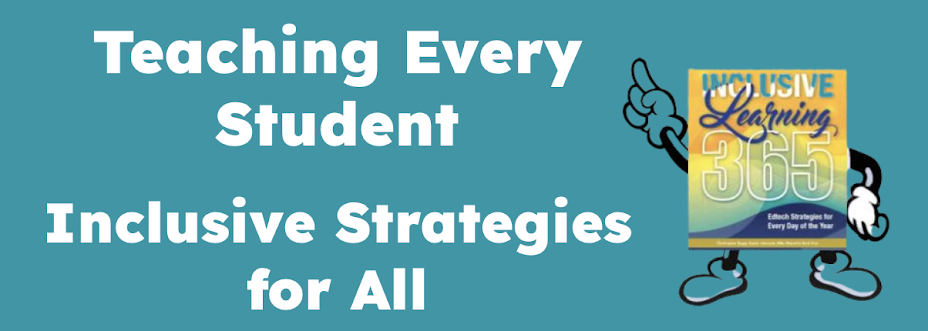I came across this information, written by Skip Stahl, that was posted on the TRLD site (Technology, Reading and Learning Diversity). Skip proposes that education will undergo a profound shift as a result of IDEA 2004 which mandated accessible instructional materials. When materials are presented in print only, they are inherently inaccessible to students with disabilities. State and local educational systems must now provide materials in alternative specialized formats. Here, he describes the impact for educators:
Moving beyond the statutory policy and implementation challenges, what does all this mean for the practice of education? It means a profound and fundamental shift in the status quo.Skip describes this as the tipping point. That education will change for all students due to the mandate requiring accessible instructional materials for all.
Administrators and teachers will need to increasingly incorporate networked and mobile (cell phones, PDAs, laptops, computers, etc.) technologies into their day-to-day educational practice because that is where the instructional content will be. Not to do so is not only absurd, it is fundamentally discriminatory since it presumes that only an elite subset of students will need to have access to the predominant tools of the culture. Increasingly, core instructional materials will be remotely delivered to these devices. (emphasis mine)
This is great news for those of us who advocate for accessible materials for all our students, not just those who do well with print-based materials. This is important for anyone involved in education. Are you ready for the shift? Do you realize that the shift happens not just because it's good practice but because it's mandated by special education law?
BUT.....What I wonder is, since the special education law requiring access to instructional materials for all students was passed four years ago, why hasn't the profound shift already occurred? What are the obstacles that persist? Why are so many of our students on IEPs still denied access to instructional materials in a format (audio, digital text, Braille, large-print) that removes the obstacles to access for them?
We need more Skip Stahls trumpeting this information on federal, state and local levels.

2 comments:
Karen,
You know the resistance - we are working against 200 (400?) years of "print privilege" and the deeply rooted concepts of Protestantism and what constitutes "academic knowledge." These are the unexamined assumptions which underlie why schools do not change.
Altering this requires a massive shift in how teachers, administrators, even lawmakers are trained. Some will happen through generational change, but really, it will require constant and continuous efforts by as many of us as we can pull into the fight.
Ira Socol
Our school district does it by refusing to diagnose problems beyond "specific learning disability". The head of special ed says that dyslexia is "too complicated to diagnose" It is left to teachers to fill in the blanks about why students have a problem learning. Unfortunately, the culture of our school district is to not challenge the structure and tools of special ed but instead to blame the students and parents. Our students are considered lazy and unengaged. We just passed a new retention policy, at the request of teachers, because some teachers feel the best way to increase student success is to retain or have the option to threaten retention. Our district rejects using email to communicate with parents. Introducing UDL or any AT is still seen as too futuristic. And we are a district just outside of Seattle. We have so far to go!
Post a Comment